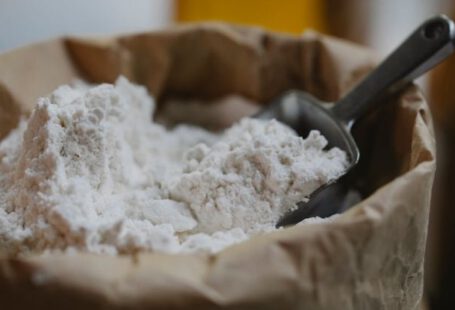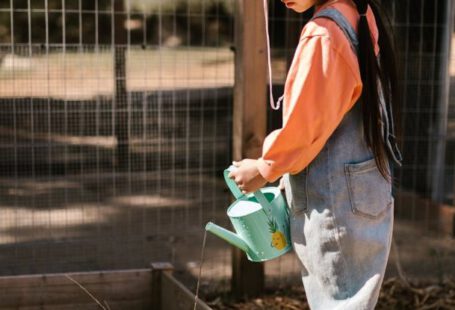Composting kitchen scraps is an eco-friendly way to reduce waste and create nutrient-rich soil for your garden. By diverting organic materials from landfills, you not only help the environment but also benefit your plants. In this article, we will explore how to compost kitchen scraps effectively to maximize the process and achieve optimal results.
Choosing the Right Bin
To start composting kitchen scraps effectively, you need the right bin. There are various options available, including traditional compost bins, tumblers, and worm bins. Consider the amount of space you have, the volume of scraps you generate, and how involved you want to be in the composting process. A larger bin may be suitable for a family producing a significant amount of waste, while a smaller bin or worm composter could work well for those with limited space or minimal scraps.
Balancing Green and Brown Materials
For successful composting, it’s essential to maintain a balance between green and brown materials. Green materials, such as fruit and vegetable scraps, coffee grounds, and grass clippings, provide nitrogen, while brown materials, like dried leaves, straw, and newspaper, supply carbon. Aim for a ratio of roughly 2:1 brown to green materials to create a healthy compost pile. Layering green and brown materials will help promote decomposition and prevent odors.
Chopping and Shredding
Chopping or shredding kitchen scraps into smaller pieces can accelerate the composting process. Smaller particles break down faster, allowing beneficial microorganisms to access the material more easily. Consider using a food processor or a sharp knife to chop up larger scraps before adding them to the compost bin. Shredding paper or cardboard can also help speed up decomposition and improve airflow within the pile.
Turning the Pile Regularly
Turning the compost pile regularly aerates the material, helping to break it down faster. Oxygen is essential for the decomposition process, and turning the pile allows fresh air to circulate throughout. Use a pitchfork or shovel to mix the contents of the bin every few weeks, ensuring that all parts of the pile receive adequate oxygen and moisture. Regular turning also helps distribute heat evenly, further promoting decomposition.
Monitoring Moisture Levels
Proper moisture is crucial for effective composting. The ideal moisture level for a compost pile is similar to that of a wrung-out sponge—damp but not soggy. If the pile is too dry, decomposition will slow down, while excessive moisture can lead to a smelly, anaerobic pile. Monitor the moisture levels regularly and adjust by adding water or dry materials as needed. Covering the compost bin with a lid or tarp can help retain moisture and prevent the pile from drying out.
Harvesting and Using Compost
Once your kitchen scraps have fully decomposed into rich, dark compost, it’s time to harvest and use the finished product. Depending on the composting method and materials used, this process can take several weeks to several months. Finished compost should have an earthy smell and a crumbly texture, indicating that it is ready to be added to your garden soil. Use compost as a natural fertilizer to enrich your plants and improve soil structure.
Incorporating Compost into Your Garden
When incorporating compost into your garden, mix it into the soil before planting or use it as a top dressing for existing plants. Compost adds essential nutrients to the soil, improves water retention, and encourages beneficial soil organisms. Avoid using fresh compost directly on plants, as it can be too strong and may burn delicate roots. Instead, allow the compost to mature for a few weeks before applying it to your garden beds.
Final Thoughts
Composting kitchen scraps effectively is a rewarding and environmentally friendly practice that can benefit both your garden and the planet. By choosing the right bin, balancing green and brown materials, chopping and shredding scraps, turning the pile regularly, monitoring moisture levels, and using the finished compost in your garden, you can create nutrient-rich soil and reduce waste in a sustainable way. Start composting today and watch your garden thrive with the power of kitchen scraps.





